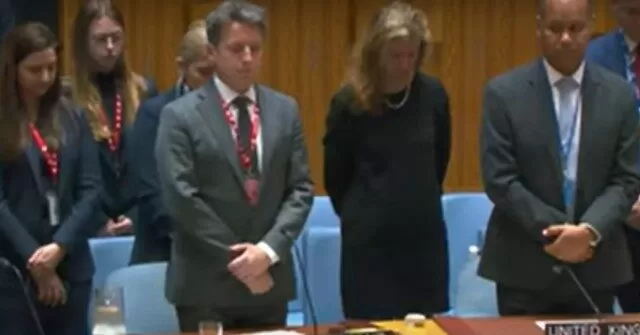Multiple bodies of the United Nations came together on Monday to honor the late Iranian President Ebrahim Raisi, who passed away last week at the age of 61. The news of his death was met with mixed reactions, with many mourning the loss of a leader who was known for his dedication to his country and his people. However, the decision of the UN to honor Raisi has sparked outrage from Israel, who has accused him of being responsible for thousands of deaths during his time in power.
The United Nations General Assembly, the Security Council, and the Human Rights Council all paid tribute to Raisi, with many members praising his leadership and commitment to his country. The General Assembly observed a moment of silence in his honor, while the Security Council held a special session to remember his contributions to international peace and security. The Human Rights Council also released a statement expressing their condolences and recognizing Raisi’s efforts to promote human rights in Iran.
However, the decision to honor Raisi has been met with criticism from Israel, who has accused him of being responsible for the deaths of thousands of people during his time as President. Raisi was known for his hardline stance on political dissidents and his involvement in the 1988 mass executions of political prisoners. Israel has called the UN’s decision to honor him a “disgrace” and has urged other member states to boycott the tributes.
Israeli Prime Minister Naftali Bennett condemned the UN’s actions, stating, “It is a disgrace that the United Nations is honoring a man who was responsible for the deaths of thousands of innocent people. Raisi was a brutal dictator who showed no regard for human rights or the rule of law. The fact that the UN is honoring him is a slap in the face to all those who have suffered under his regime.”
The Israeli government has also called on the UN to reconsider their decision and to instead honor the victims of Raisi’s regime. They have urged other member states to join them in boycotting the tributes and to send a strong message that human rights abusers will not be glorified by the international community.
Despite the backlash from Israel, many other countries have expressed their support for the UN’s decision to honor Raisi. The Iranian government has also welcomed the tributes, with President Hassan Rouhani stating, “We are grateful to the United Nations for recognizing the contributions of our late President Raisi. He was a dedicated leader who worked tirelessly for the betterment of our country and our people.”
The tributes to Raisi have also sparked a debate about the role of the UN in honoring world leaders, especially those with controversial pasts. Some argue that it is important to recognize the contributions of leaders, regardless of their past actions, while others believe that honoring human rights abusers sends the wrong message and undermines the values of the UN.
In the end, the decision to honor Raisi may be seen as a controversial one, but it also serves as a reminder of the complexities of international relations and the difficult decisions that must be made. While some may disagree with the UN’s decision, it is important to remember that the organization’s ultimate goal is to promote peace and cooperation among nations, and honoring a leader who has passed away is a way to show respect and pay tribute to their contributions.
In conclusion, the tributes to the late Iranian President Ebrahim Raisi by multiple bodies of the United Nations have sparked both praise and criticism. While some have praised his leadership and dedication to his country, others have condemned his actions and called for the UN to honor the victims of his regime instead. The decision to honor Raisi may be controversial, but it also serves as a reminder of the complexities of international relations and the difficult decisions that must be made in the pursuit of peace and cooperation.

